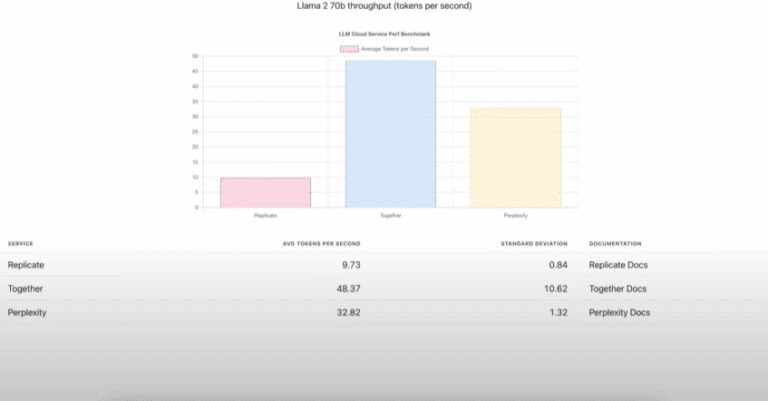Meet Devin: Pioneering the Future as the First AI Software Engineer
Introducing Devin: The World's First AI Software Engineer
Introduction
The AI market is experiencing rapid growth, particularly in the realm of Generative AI, with notable releases like OpenAI’s ChatGPT-4 in 2023 and Anthropic AI’s Claude 3 just earlier this month. These advancements have significantly aided content developers, and now, a new breakthrough has emerged in software engineering.
Just 72 hours ago, Cognition introduced Devin, the world’s first fully autonomous AI Software Engineer. This revolutionary AI sets a new benchmark in software engineering, capable of writing code and creating websites from a single prompt, mimicking the skills of a human software engineer.
Before diving deeper into Devin’s capabilities, let's get to know its creator – Cognition.
What is Cognition?
Established in November 2023, Cognition is a U.S.-based applied AI lab dedicated to advancing AI reasoning capabilities. By honing in on reasoning, they aim to unlock vast potential across various AI disciplines. The team boasts experts from top tech companies such as Google DeepMind, Cursor, Scale AI, and Nuro. With $21 million in funding led by Peter Thiel’s Founders Fund, Cognition also enjoys backing from influential figures like Tony Xu, CEO of DoorDash, and Fred Ehrsam, co-founder of Coinbase.
What is Devin AI?
Devin is an autonomous AI model capable of planning, analyzing, and executing complex coding and software engineering tasks from a single prompt. Equipped with its own command line, code editor, and web browser, Devin showcases remarkable versatility.
During a demonstration, Devin tested Meta’s Llama 2 on various API providers. It started by creating a step-by-step plan before building the entire project using tools akin to those used by human software engineers. Devin utilized its built-in browser to access and learn from API documentation, ultimately building and deploying a fully styled website.
What truly distinguishes Devin is its capacity for learning from its mistakes, making thousands of decisions and improving over time. It has outperformed other solutions on standard software engineering problems and impressed top tech brands during AI task interviews. Devin has also successfully completed real-world tasks from Upwork, including coding projects, debugging computer vision models, and generating detailed reports.
Similar to GitHub Copilot, which turns prompts into runnable code, Devin can complete code chunks and translate them across multiple languages. However, Devin goes further by finishing entire coding projects from start to finish without human intervention.
How does Devin AI work?
As mentioned earlier, Devin features its own command line, a dedicated code prompter section, and an integrated web browser for resource collection.
Upon receiving a prompt, Devin enters "Planner" mode, creating a detailed step-by-step guide to address the problem.
The interface then transitions to a four-section dashboard:
1. Input prompts section
2. Command line section
3. Code editor
4. Web browser for analyzing resources and deriving inferences
Finally, Devin presents a visualization of the solution.
How to Get Access to Devin AI?
Devin is now available for early access. You can "hire" Devin by joining the waitlist.
How Does Devin Compare to Competing Models?
Devin has been tested on SWE-bench, a benchmarking platform that challenges agents to solve real-world issues in open-source projects, a common task for software engineers. Cognition evaluated Devin on a random 25% subset of the dataset. While other models were assisted by being told exactly which files needed editing, Devin operated unassisted. Devin successfully resolved 13.86% of the issues from start to finish, significantly outperforming Claude 2's 4.8% and ChatGPT-4's 1.74%. Cognition announced that they will release a more detailed technical report soon.
Is Devin the Future Replacement for Software Engineers?
The remarkable performance showcased in benchmarking has stirred up debate among software developers and engineers, sparking concerns about the future of software-related jobs. Cognition, an AI lab dedicated to reasoning, asserts its commitment to developing AI teammates with capabilities surpassing current tools.
According to Cognition, "Devin is an invaluable, versatile teammate, capable of collaborating with or autonomously completing tasks for engineers to review. With Devin, engineers can focus on more complex problems, enabling teams to pursue ambitious goals." Interestingly, despite assumptions that Devin may replace numerous software engineers, Cognition is actively hiring human engineers.
Opinions are divided, and conclusive judgments await thorough testing of Devin. Andrej Karpathy, former AI director at Tesla, likens automating software engineering to automating driving, foreseeing substantial changes in the field involving supervised automation and input of high-level commands or strategies in English.
Ultimately, like any other generative AI tool, Devin's effectiveness hinges on the proficiency of its user. It serves as a tool in the hands of skilled individuals, streamlining tasks and reducing workload.
Conclusion
Devin AI marks a significant leap in Generative AI, transforming software development by automating coding tasks and tackling complex problems. With advancements like GPT-4, Claude 3, and now Devin, the future of Generative AI appears promising, emphasizing assistance rather than replacement. Exciting times lie ahead! See you in the next chapter!
Tags:
AI






